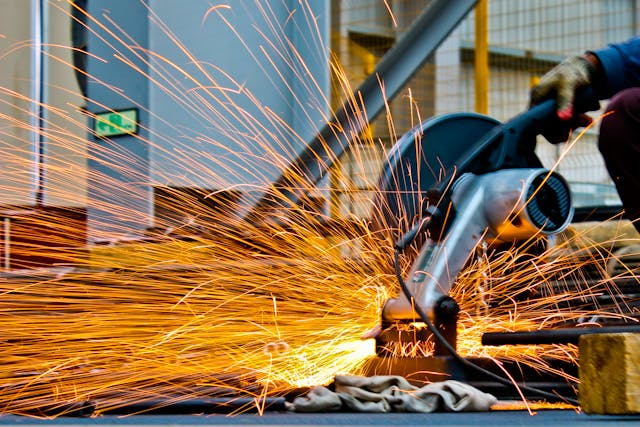In industrial settings where high performance is a constant demand, using subpar parts is risky. Something as small as a worn-out seal or a poorly machined component can bring your entire operation to a halt.
Here’s why investing in high-quality parts is critical.
Downtime is expensive
A single failed part can shut down operations instantly and damage equipment. If the part failed because it wasn’t made right or poor-quality materials were used, it’s going to be expensive to fix. Not only will you need to buy a new part (this time at a higher price), but you’ll need to pay for repairs to the equipment, take the hit for lost profits, and potentially deal with clients who walk.
You never save money buying cheaper parts. High-quality parts are more reliable, durable, and consistent. They also help you avoid unplanned maintenance and emergency repairs. One emergency repair can cost thousands of dollars since the fees are usually at least double regular rates.
Better parts increase equipment lifespan
Poor quality components are more than just time bombs waiting to fail in one major incident. They also increase wear and tear on machinery when they’re not a perfect fit. On the other hand, quality parts reduce friction, dissipate heat properly, and absorb vibration to extend the lifespan of your assets.
High-quality components are made of better materials, which is part of the reason they’re more expensive. For example, there are thousands of centrifugal pumps on the market but not all created equal. The construction, design, and materials all differ between manufacturers. The best pumps are made with stainless steel, customized for flow rates and pressure, and designed to last. Investing in quality components now will save you thousands in repairs later on.
Precision is critical in some industries
In certain industries like aerospace, construction and energy, and medical manufacturing, precision isn’t optional. Even minor defects can trigger system-wide failures that compromise safety and product quality, not to mention violate regulatory compliance.
In applications like turbine assemblies, all components must fit perfectly. A part that is just a few millimeters off can cause excessive wear and total system failure. In the energy sector, a small crack or flaw in a part can cause leaks and explosions. In these industries, “close enough” is never good enough.
High-precision parts reduce the chances of defective products and warranty claims. They also protect your company from recalls and legal disputes. And if you’re subject to strict safety and quality regulations, quality parts are more likely to meet and exceed those standards. Precision parts give you a competitive advantage. If you can’t produce consistent output, you won’t be in business for long.
Safety depends on quality
In industrial settings, a single part failure can be catastrophic. It can result in injuries, deaths, lawsuits, environmental damage, and regulatory violations. You can avoid this by using high-quality components that meet or exceed industry safety standards and certification ratings.
Cheap parts always cost more long-term
The saying, “Buy cheap, pay twice” is true. When you start with cheap parts, it’s only a matter of time before they start to wear out and break down, forcing you to replace them prematurely. Continually using cheap replacements costs more than buying high-quality components from the start.
In addition to a high cost for parts, low-cost components often cause cycles of repeat failures that require more labor to fix and troubleshoot. The repeated downtime can make your customers and clients see you as unreliable and can force them to find another supplier.
Good reputations are built on quality
Industrial clients expect consistency and professionalism, and flawed parts that cause downtime ruin that trust. Using premium parts sends the message that you don’t cut corners because you care about safety and quality. When you have fewer breakdowns you’ll produce more reliably and you’ll be able to build a strong reputation.
Compliance requires high-quality parts
Regulatory agencies like IOS, OSHA, and other industry-specific governing bodies require high-quality components in key systems for compliance. Using low-quality, non-compliant parts can result in failed audits, fines, and pulled contracts. Using quality parts is the only way to future-proof your operations from regulatory crackdowns.
Quality is a requirement
Using quality parts is a requirement in industrial settings. It helps you avoid preventable breakdowns, costly downtime, expensive lawsuits, and supports a strong brand reputation. Cutting corners is reckless and will only increase downtime and cause machinery to fail faster. The bottom line is that quality parts are the foundation of reliable industrial operations. When you invest in quality now, you’ll save later.

